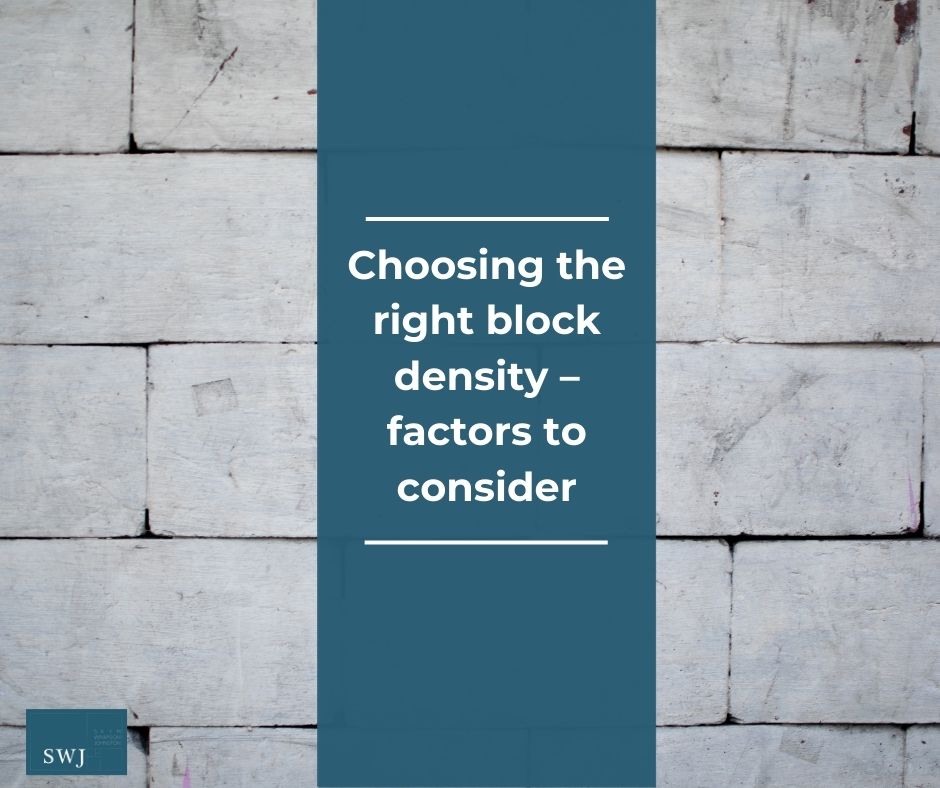When specifying block density there is a balance to be had between weight and insulation efficiency.
Soundproofing might also factor into the decision, but this is not the primary concern of a structural engineer. The density of the block does not affect its strength, so this is not a factor. You can have a dense block with a compressive strength of 2.9 N/mm2, and an aerated block with a compressive strength of 10.9 N/mm2. The factors to consider is that a lighter aerated block has a higher U-Value (offers more efficient insulation), but less sound proofing. A heavier, denser block offers less insulation, but better soundproofing.
The issue for a structural engineer is the weight of the specified block and what this means for the rest of the structure. If a structure uses lighter aerated blocks, then this affects the required width and depths of the foundations, less is needed to support a lighter structure and keep it in place. Similarly, any beams or lintels needed to support wide openings in the structure can be supported on lighter gauge lintels or smaller steel beams
However, with the external wall, an aerated block that is lighter might seem the perfect solution budget and insulation-wise; the issue becomes the wind loads and lateral stability. Masonry has limited strength when subjected to lateral loads. The wall wants to move sideways and snap at mid-height. One way of resisting this is to have increased mass acting on the wall from above effectively pinning it in place. If you’ve got a heavier weight to your walls because you’ve used denser blocks your walls will have more stability.
If you are using lighter blocks you may need to include wind posts and bed joint reinforcement to give your structure lateral stability.
The choice of block density also has a bearing on the cavity width required for a wall and therefore the amount of insulation required.
The foundation designs, cavity wall, insulation requirement, and lateral stability measures are all affected by the block density used so having this discussion with SWJ Consulting early in the design process will help identify the pros and cons and identify what will be the best solution for your project. This conversation could save a significant amount of time and budget for the client.
Give SWJ Consulting a call on 01993 225085 or email mail@swjconsulting.co.uk if you’re working on a residential or commercial project and could use a no-obligation chat about block density.




